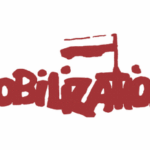The grant is for 4 years. It is open to students of all nationalities. Coverage of research expenses (conferences, summer schools, research periods abroads) is provided.

The PhD course in Political Science and Sociology (13 positions available) of the Scuola Normale Superiore builds upon a methodologically pluralist approach and a multidisciplinary nature, combining structured teaching with close supervision activities by a dedicated faculty. The duration of the programme and its grant is four years.
The main research areas which have been singled out are organized around the following topics.
Democracy and social movements. In this area, sociological and political science competences converge around political sociology, which bridges the two disciplines through its main focus on the reciprocal influence of political and social transformations. Social movements, civil society, participative democracy, political violence, new media and conflicts are the main concepts addressed in the teaching and research activities. In the best European tradition, the methodological approach will be sensitive to the historical, institutional and cultural specificities, but also oriented to the development of theory.
Comparative/global public policy and international governance. This area addresses, in an innovative way, themes such as the comparative analysis of public policies; the global dimension of public policies; the multilevel governance of public policies, that is the structural and processual characteristics that influence how public policies are decided and implemented in multilevel institutional processes (from the sub-national to the national, and from the supra-national to the international ones, with due attention devoted to the European Union); the structure of regimes and dynamics of international politics (not only foreign policy and defence, but also migration, social, public health, educational, energy and economic development policies).
Comparative politics and society. This area is oriented towards the comparative analysis of a set of major politico-institutional processes, focusing on the interactions between political parties, interest groups, civil society and public opinion. Classical comparative analysis, based on cross-national comparison, is backed up by the study of processes which are territorially multilevel, such as Europeanization and globalization, in the political ‒ but also economic, social, and cultural ‒ spheres.
The PhD course in Transnational Governance (4 positions available) is offered by the Scuola Normale Superiore in agreement with the Sant’Anna School of Advanced Studies in Pisa. The PhD course, which provides for the joint degree to be issued by the two schools, combines a structured teaching program with a focus on supervision by professors dedicated to doctoral teaching. The duration of the course and related scholarships is four years.
The PhD aims to provide the tools to understand conflict and transformation in the relationship between society and institutions, putting the role of the governance of complex phenomena, such as the problems inherent in the processes of globalization and Europeanization, at the center of theoretical analysis and investigation empirical. Contemporary political processes are increasingly marked by the overcoming of the traditional distinction between national and international phenomena. On the contrary, regional, national and supranational actors and institutions interact through transnational dynamics and new forms of governance. The analysis of the aforementioned processes involves important methodological, analytical and theoretical challenges to the more traditional perspectives of political and social studies. The course aims to provide the tools to face these challenges in a transnational perspective.
Through the interpretative lenses of political and social sciences and a multidisciplinary perspective open to the contributions of economics and law, the course focuses on issues related to institutions, actors and forms of trans-, supra- and national governance.
The course is based on a two-level educational program. The first level provides a common theoretical and methodological basis provided by social and political sciences (in particular from political science, international relations, European studies and political philosophy). The second level provides knowledge aimed at understanding transnational governance with reference to the following thematic areas: International Relations, Global Economy and Security, European Politics and Governance, Transnational Political Movements and Civil Society. These thematic areas are analyzed through the contributions of political science, sociology, political philosophy, law, and economics.
The PhD course in Transnational Governance aims to train scholars, researchers and governance experts working in the academic field, in applied research centers and think-tanks, in consulting for international organizations as well as in national, European (sub-) policymaking and global.
28/10/2025

14/10/2025

Journal Article - 2025
Journal Article - 2023
Journal Article - 2023
Journal Article - 2023
Journal Article - 2023
Monograph - 2023
Monograph - 2022
Monograph - 2022
Journal Article - 2021
Journal Article - 2021